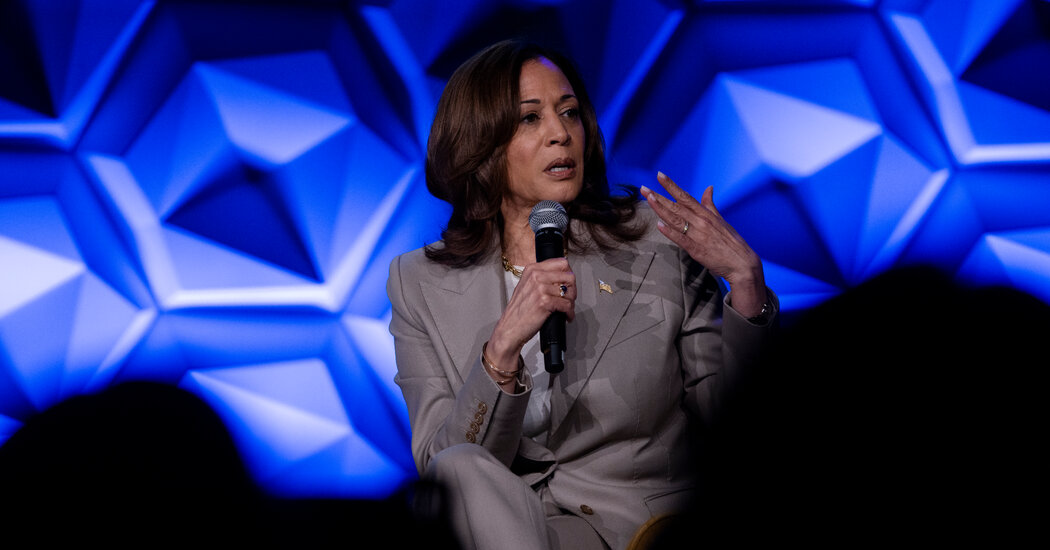The presumptive Democratic nominee has won concessions from Big Tech leaders on A.I., but she hasn’t successfully pushed Congress to regulate.
Over the past three years, Vice President Kamala Harris has taken a leading role inside the White House on artificial intelligence as the technology is taking off.
As A.I. czar, she brought the chiefs of OpenAI, Microsoft, Google and Anthropic to the White House to agree on voluntary safety standards for the technology. She led a White House executive order mandating how the federal government would use and develop A.I. And she pushed Congress to adopt regulations to protect individuals from A.I. killing jobs and other harms — although little legislation has emerged and the companies have so far faced few roadblocks.
We “reject the false choice that suggests we can either protect the public or advance innovation,” Ms. Harris said in a speech in November, calling for both global regulation and further accountability from companies. “We can and we must do both.”
Now, as the Democratic Party’s presumptive presidential nominee, a win for Ms. Harris could mean a continued relatively smooth runway for A.I. companies, which have enjoyed little U.S. regulation and the chance to shape White House and Congressional views on the technology.
Ms. Harris has previously taken tougher stances on Big Tech. As the former district attorney of San Francisco, and then attorney general of California, she pushed for laws against cyberbullying and to promote greater privacy for children online. As the state’s attorney general, she worked to stem the spread of intimate images, taken without their subject’s consent, on big tech platforms.
“She brings a very kind of lawyerly, kind of thoughtful, mind-set about thinking about all sides of the issue,” said Alondra Nelson, a former director of the White House Office of Science and Technology Policy.
